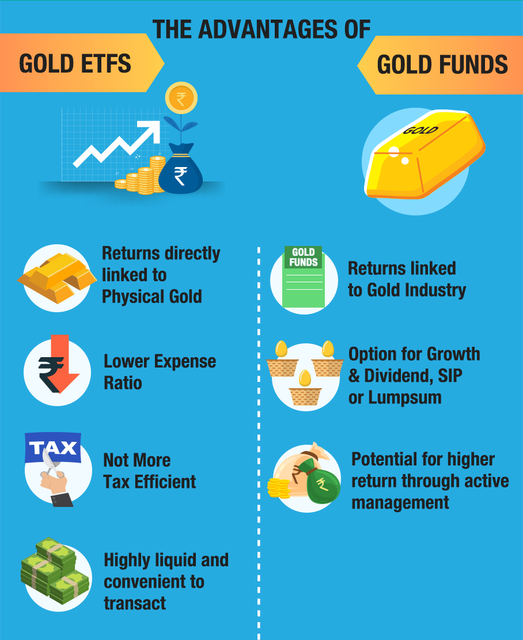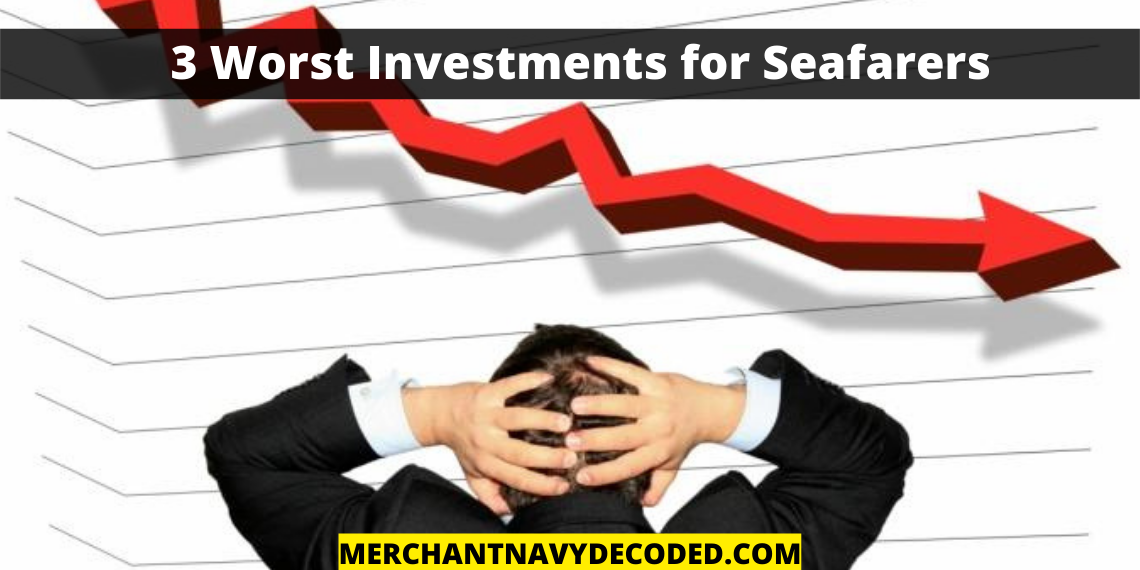3 Worst Investments for Seafarers
When seafarers buy any asset like property, gold or decide to give a share of valuable goods to someone with a motive to earn profit, it is called investment. We have seen Investments and savings being used interchangeably. But these are two different concepts that play an important part in a seafarer’s journey to financial stability. To understand savings in a layman term, it is the money that you keep aside from your earnings in a bank account with a motive to save it for future use. Value of savings tends to grow at a slow rate while the value of investment can remain the same, go down or increase infinitely.

But seafarers often make mistakes unknowingly while making investments. Let’s go through the 3 worst investment decision a seafarer should avoid making in his life –
- Do not buy any Agricultural Property – If a seafarer stays outside India for 183 days or more during the financial year as per his/ her CDS (Continuous Discharge Certificate) or passport, his/ her residential status changes to a Non-Resident Indian under the Income Tax Act 1961. NRIs in India are exempted from buying agricultural land. However, seafarers can inherit such properties from residents of India. If you’re a seafarer planning to buy a property, it is advisable to seek legal counsel from esteemed real estate platforms prior to making any transactions.

- Cryptocurrency – Seafarers who actively sail go on long contracts extending for months. During this time, they are not well connected with the out worldly information and thus can lack knowledge about new advancements in the financial sector and public policies. Cryptocurrencies on the other hand are complex mediums of investments. It has not been accepted by RBI as an official mode of transfer. Other than this, cryptocurrencies have no sovereign backing questioning the security of your big investments. Hence, seafarers should be well versed in crypto assets before investing there.

- Trade –

Naturally the next question that arises in the mind of seafaring professionals is where they should invest for long-term financial stability. Financial decisions come with risks but that should not demotivate your will to grow rather learning to differentiate between good investments and bad investments should be every seafarer goal. Few of the good investment, we would like to list are as follows –
- Mutual Funds – To understand it the simple way, mutual fund is a way to “not keep all your eggs in one basket” as it invests in a range of companies and industries providing low risk security even if one company falls. Investing in mutual funds has become an easy process as fund managers do the research for you and select the securities accordingly. This is a comparatively low risk and easy way to invest your money.

- Exchange Traded Funds – This is similar to mutual funds but an ETF can be purchased and sold on a stock exchange just like a regular stock. It offers an ease of making intraday sales at a prevalent price. These are highly flexible and can be used by seafaring professionals to gain an immediate control over the equity market.

- Gold – When it comes to investment, gold has been the number one choice for the world since ancient civilisations. People invest in gold in multiple ways varying from gold bullion, Gold ETF or sovereign gold bonds. Seafarers looking for safe investment options should consider purchasing gold ETF which are available at low cost. Owning gold jewelry can be a beautiful experience but according to the investment point of view it has a mediocre rate of returns unless you are the owner of a jewelry shop.

Disclaimer :- The opinions expressed in this article belong solely to the author and may not necessarily reflect those of Merchant Navy Decoded. We cannot guarantee the accuracy of the information provided and disclaim any responsibility for it. Data and visuals used are sourced from publicly available information and may not be authenticated by any regulatory body. Reviews and comments appearing on our blogs represent the opinions of individuals and do not necessarily reflect the views of Merchant Navy Decoded. We are not responsible for any loss or damage resulting from reliance on these reviews or comments.
Reproduction, copying, sharing, or use of the article or images in any form is strictly prohibited without prior permission from both the author and Merchant Navy Decoded.




Dns
Hi Aryan, if you want to go for DNS and want to learn more about Diploma in Nautical Science and IMU CET, then you can call JMDI Academy at +917417085906.